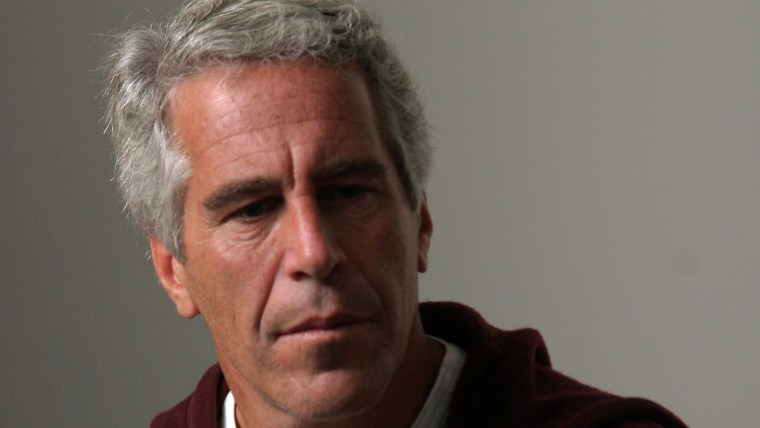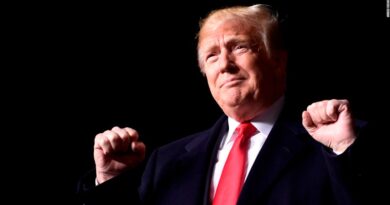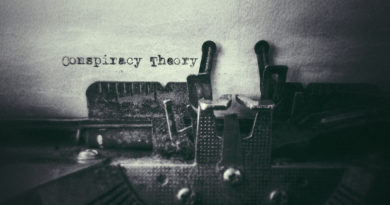Opinion | Fervent belief in Jeffrey Epstein death conspiracy theories may mask darker truths
If all conspiracy theories could be summarized in a single motto, it might sound like the inverse of Occam’s razor: “The simplest explanation is usually the wrong one.” What appears to be a lone tragedy or accident is actually part of a darker network orchestrated by an evil cabal, whether it’s globalists, the deep state, the Illuminati or some other villain. Conspiracy theories reject the simplest explanations of events as mere distractions from deeper truths.
When accused sex offender Jeffrey Epstein was found dead inside his Manhattan jail cell in 2019, for instance, the simplest explanation was that Epstein had killed himself out of despair, cowardice or maybe even sheer spite. None of these reasons are far-fetched. A new report from the Justice Department’s inspector general found no evidence to contradict them, citing widespread misconduct at the jail. Yet polls show that less than half of Americans believe Epstein died by suicide.
Polls show that less than half of Americans believe Epstein died by suicide.
For the doubters, enough versions of the Epstein death conspiracy theory exist to satisfy almost everyone across the political spectrum. Shortly after Epstein’s death, President Donald Trump retweeted a rightwing media figure’s post that included the viral hashtag #ClintonBodyCount, helping to promote the theory that Bill and Hillary Clinton murdered Epstein to keep him from revealing their secrets. At the very same time, the hashtag #TrumpBodyCount appeared in social media posts repeating the same narrative, only with Trump as mastermind. Other theories claim Prince Andrew or Bill Gates may be ultimately responsible for Epstein’s demise, while still others suggest that Epstein is alive and well in protective custody somewhere in Israel.
All of these competing versions share a belief that the simplest explanation — Epstein died by suicide in his jail cell — is not just wrong but is covering up a more important truth. And by revealing the buried truth, these theories argue, the world is made better. This faith in revelation is at the heart of what makes a conspiracy theory so appealing.
But believing that the world’s messiness and misery can be solved when enough people bring some dark truth to light doesn’t make it so. Ironically, it’s by ignoring the simplest explanations that conspiracy theories can themselves distract from truths that are both more obvious and much bleaker. For example, believing that Epstein was murdered by either a cadre of evil Democrats or evil Republicans overlooks the ways that money tends to trump political principles. Pictures of Epstein happily smiling with both Republicans and Democrats — including Trump and the Clintons — are a testament to a political system shaped by the oversized influence of powerful donors.
The same can be said for the belief that Epstein’s former celebrity friends would have him killed to prevent damning personal revelations. But this theory assumes that they would have faced consequences for those revelations. It ignores a much starker reality about the lack of accountability for the wealthy, famous and powerful. While figures like Harvey Weinstein and Bill Cosby finally have faced consequences for their actions, plenty of other examples suggest that justice moves slowly (if at all) for the rich and powerful. Even Epstein’s own damning personal revelations had been a poorly kept secret for decades. (In a 2002 interview, Trump called Epstein a “terrific guy” who “likes beautiful women as much as I do, and many of them are on the younger side.”)
Conspiracy theories of all kinds are a trade-off, offering something fantastic and achievable in place of the mundane and difficult. In the case of Jeffrey Epstein’s death, the stories of murder plots drown out the harder-to-face reality of how girls and women living below the poverty line are regularly sex trafficked.
Conspiracy theories of all kinds are a trade-off, offering something fantastic and achievable in place of the mundane and difficult.
The same might be said of QAnon’s tales of global, satanic pedophilia rings involving millions of children who are killed to satisfy elites’ lust for adrenochrome. In QAnon fantasies, child sex trafficking could be destroyed simply by brave citizens bringing the truth to light. In fact, fighting child sex trafficking involves a huge range of issues, from mental health outreach to social media regulation to increased funding for social services, to name just a few.
None of this is to say that conspiracies don’t exist. We shouldn’t take every official story at face value. But there’s an important lesson to learn from the overwhelming number of “Epstein didn’t kill himself” narratives. While conspiracy theories claim to be all about revelation, they can also hide so much more. Not political machinations or nefarious global plots but very real social and political problems that can’t be solved by retweeting a hashtag or sharing a YouTube video. Conspiracy theories allow us the luxury of not talking about these problems with one another, comforting believers with an easy solution over a hard slog toward reform.
Questions about what happened to Epstein in that federal jail cell may always linger. Yet, these are not the questions that can drive public debate and discussion about things that affect all of us. While “the truth” may be less of a mystery than conspiracy theorists claim, we all deserve better and more effective forms of public discourse. Conspiracy theories might reject the simplest explanations of certain events, but they are almost always a simplistic response to real problems. And real problems aren’t solved so easily.



